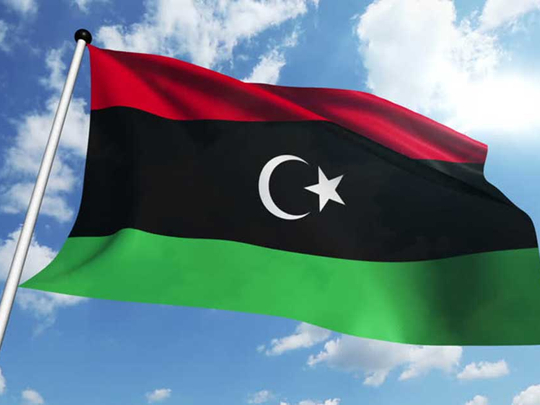
A Libyan military solution to the civil war is fast becoming the only option in the strife-torn country. However, a Mandela type Truth and Reconciliation Commission is also a top priority. The West retains its out-of-touch policies when in Luca, Italy, the G7 ‘warned and commanded’ that the fractious warring Libyan parties ‘must’ work with the dying UN appointed and recognised Government of National Accord (GNA), situated only in a small naval base in Tripoli and its so called Presidency Council (PC). It further ordered Libyans to work together to fix the economic crisis by recognising that the Central Bank of Libya (CBL) need to only collaborate with the GNA/PC, It is out of touch with the real issues on the ground and its language is expressed almost in colonial terms.
Other global interference in Libya continues. Most recently also the GNA and PC leader Fayez Al Sarraj was in Germany to see the head of the US Africa Command (Africom) General Thomas Waldhauser. Africom’s headquarters and most of its personnel are based in Germany, not Africa. Need I say more?
A waste of time, as the efforts of the UN and the European Union have proven in these past years. As far as Al Sarraj is concerned, he is not elected by Libyans, but chosen by the foreigners. That’s never going to achieve forward progress for Libya’s future.
The first anniversary of the UN-sponsored Government of National Accord and headed by Al Sarraj was on March 30. But the GNA doesn’t function. To compound the GNA’s inability to govern, an acute emergency has emerged in the past week, revolving around further direct sales of oil by Cyrenaica (East Libya), bypassing Tripoli and the West.
If this issue remains unresolved the country may split into two or three. There is now tremendous in-fighting between the National Oil Company (NOC) and a variety of diverse interests. The West’s reactions to these realities remain puzzling and totally unrealistic to say the least.
New dynamic
These developments are part of a new dynamic that is entering the Libyan Civil War that is another trend that may satisfy weary Libyans themselves. The re-entry of two of Muammar Gaddafi’s children who are seeking a Truth and Reconciliation Commission, similar to South Africa’s, in order to bring unity to the country. Specific Libyan tribes are starting to back the Gaddafi clan.
Perhaps with the support of military commander Khalifa Haftar, a new and hopefully peaceful attempt at unification may appear that ousts the GNA, other Tripoli militias and extremists for good from the political scene. This is becoming a realistic proposition. It is to this point that national reconciliation must be addressed. South Africa’s process helped to unify the country after decades of apartheid.
What makes this possible for the Gaddafis maybe is Haftar. He is close to the Elders of the Warfalla tribe that give him their support in the war against terrorism. The Warfalla tribe is the biggest tribe in Libya and is located in the Bani Walid and Sirte area. The Warshfana tribe is the second largest and is located to the south-west of Tripoli.
Both tribes are against the extremists and are very sympathetic to the Gaddafis. Importantly, the tribes believe that the Gaddafis can accommodate other Libyan parties and forgive their crimes that were committed before and after the revolt of 2011. Already, there is evidence of this happening. In the past week, Libyan authorities have released from prison some elites from the Gaddafi era.
While the limelight is on Saif Gaddafi, who is still recovering from physical and mental injuries sustained during his capture, his sister Aisha Gaddafi is fast becoming the most important member of the family. She is a pragmatic and sensible Libyan with acute political acumen, sharp wit and intellect.
Dynamic personality
She has a dynamic personality and is the most educated among her siblings. There are talks that she may return to the political scene as last week the European Court of Justice has had her travel ban lifted.
Along with her brother, both of them can begin to work together with all Libyans to rescue the country from its dreadful plight.
This tandem approach — Gaddafi siblings and the tribes — is the possible solution to Libya’s civil war. Haftar recognises the values of tribes and the Libyan Field Marshall is now using all his might to solidify and unify all Libyans.
Libya, like South Africa, is suffering from foreign interference in a Libyan decision about its own future. Self-reflection is an important part of reconciliation and it is thought that if the Gaddafis’ assistance can help in a “cleansing” to build a new Libya, then it would be a good thing. Of course, Libya is not South Africa, and the issues are completely different, yet it is the process of reconciliation and forgiveness itself which has its primordial roots in today’s modern Libyan tribes.
Help from Russia and Egypt is also essential. At the same time, African countries should unite to help Libya through this process, and not US’ Africom, UN or even the EU. Finally, let us hope for a peaceful conclusion to Libya’s six-year-old tragedy.
Richard Galustian is a business and security analyst who has lived in Libya since 2011.









